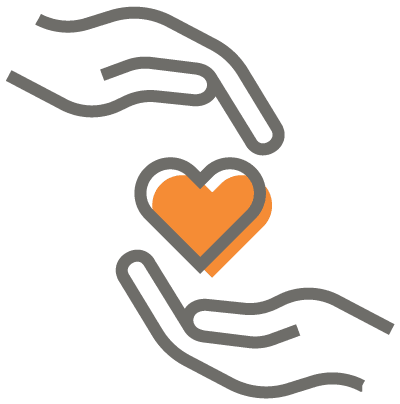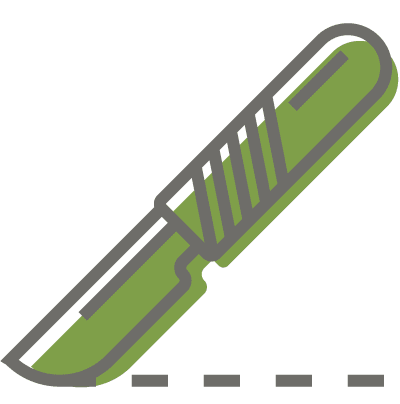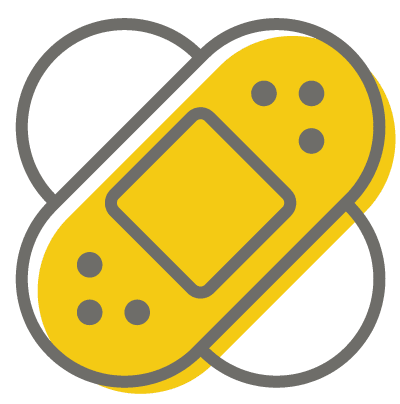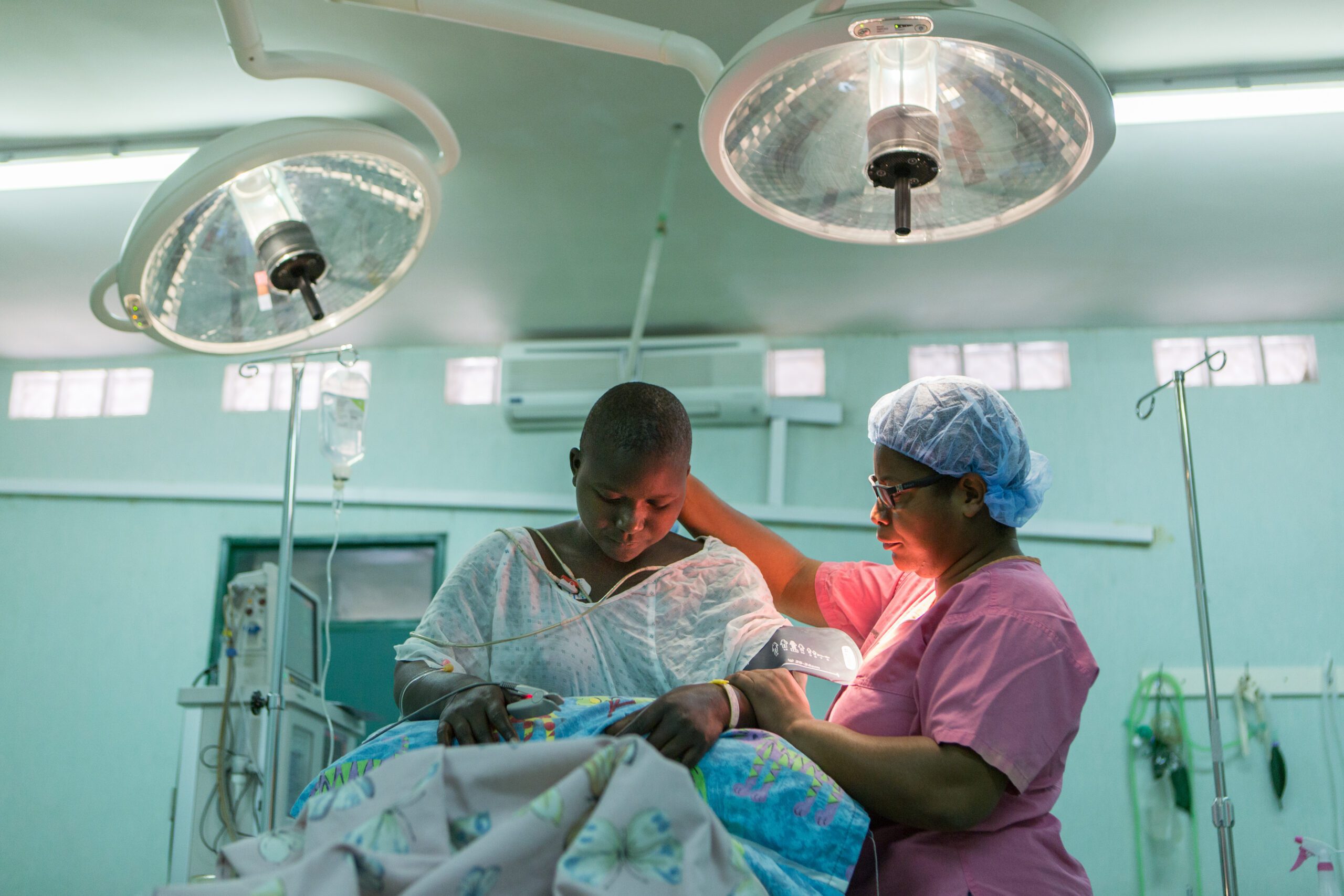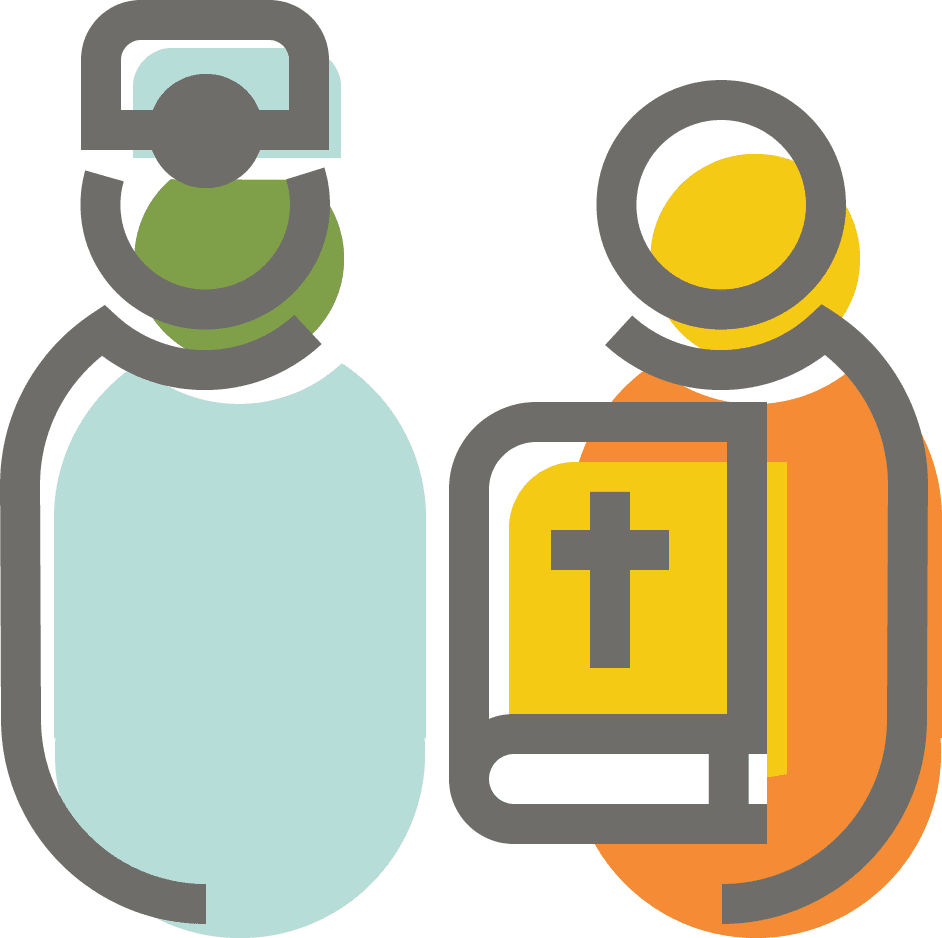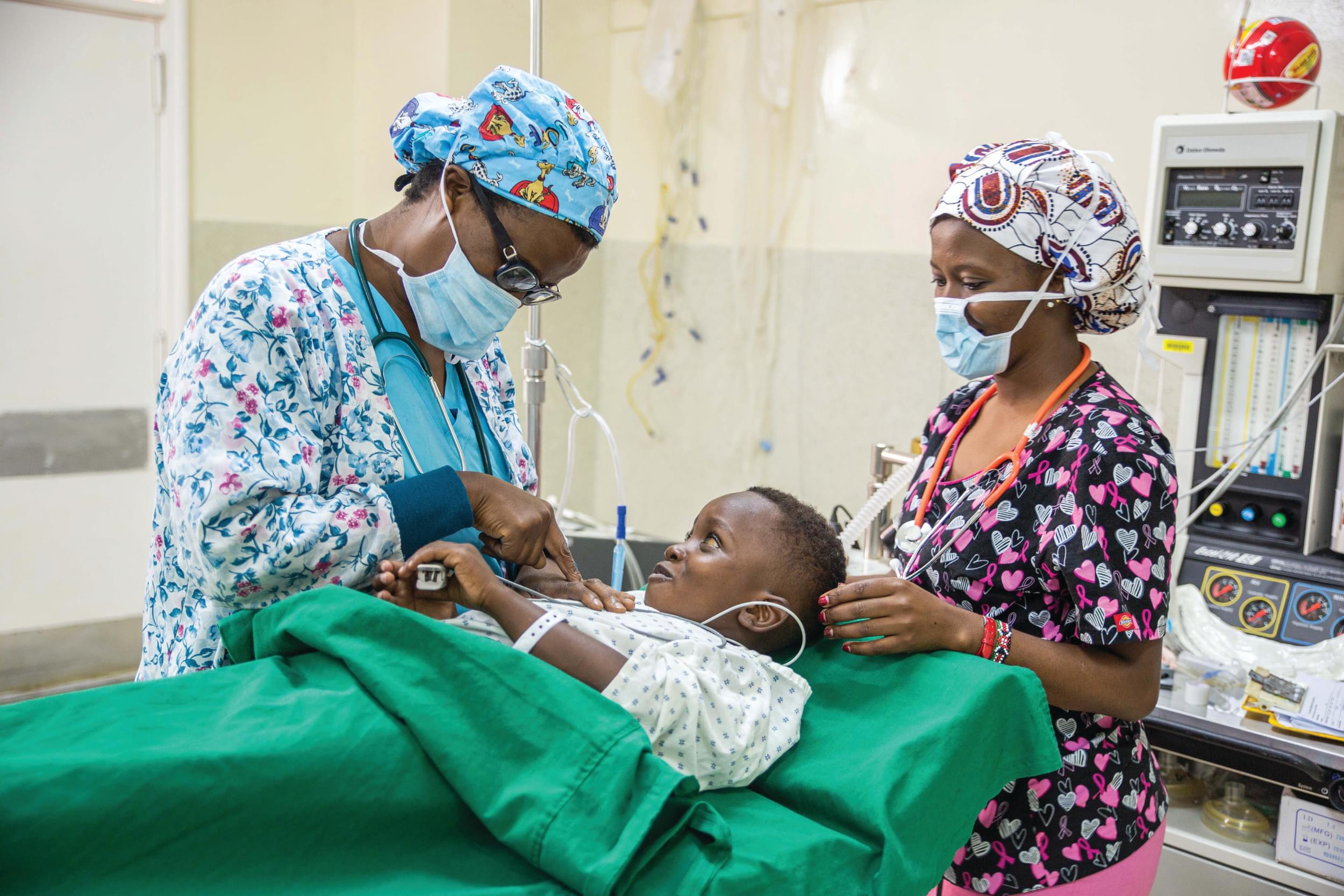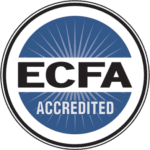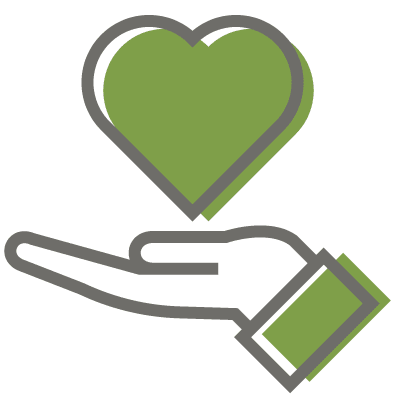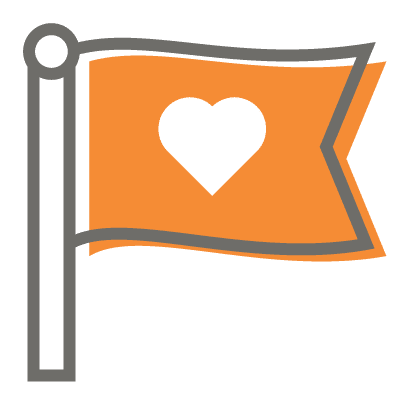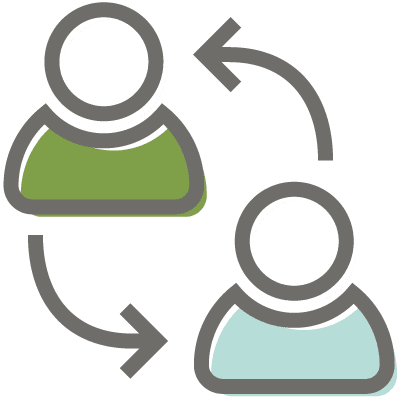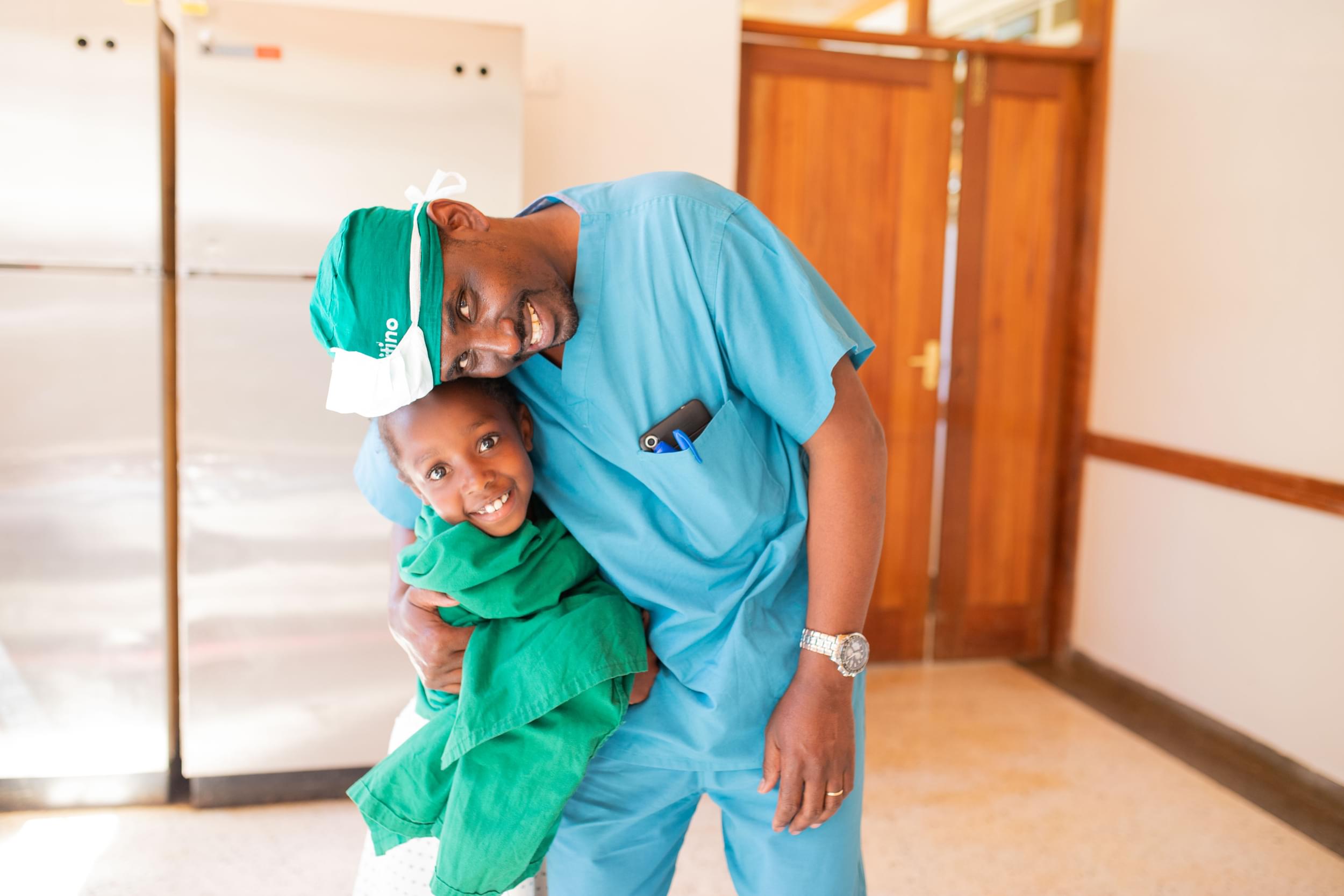When Kenny and Esnart noticed their youngest child, Nanga, having trouble walking and running—they chalked it up to her being a clumsy toddler. When she turned four, they noticed she was developing bowed legs—a condition where the legs curve, or “bow,” outward at the knees. This, too, was not very alarming as their second daughter had the same condition, and it had resolved itself on its own. But, a few years later, it became clear that Nanga’s condition was not improving.
Nanga’s parents were disheartened. In Zambia, where they live, healthcare options are limited. The country has approximately 9 physicians per 100,000 people—compared to the United States’ 259 physicians per 100,000 people. Without proper treatment, Nanga’s condition would continue to worsen and she would face a lifetime of disability, pain, and discrimination.
“It was a huge burden on us because it looked like she would never do anything in life,” shares Kenny. “It reached a point where she would crawl her way to the bedroom. All her friends left her.”
They were desperate for help. Low-to middle-income countries like Zambia lack sufficient clinical staff (surgeons, anesthesiologists, nurses, physical therapists, etc.) to meet their enormous needs. So, when their district hospital had a visiting surgeon, Kenny and Esnart took Nanga to be evaluated.
After an initial assessment, the surgeon decided to operate on her legs. However, Nanga did not receive any follow-up appointments or treatments after the surgery because the surgeon never returned to the hospital. Not long after, Nanga’s legs started to curve outward again, and the deformity progressed, causing Nanga more discomfort and pain.
By the time Nanga was in fifth grade, the pain in her legs had become so unbearable that she missed many days of school. But just as painful were the mocking words she heard from people in the neighborhood.
Nanga recalls, “They would laugh at me and say I’m lame. It hurt me a lot.”
Even at church, Nanga preferred to sit alone to avoid people. The girl who used to love playing with friends and had big dreams of being a nurse was becoming isolated in her community.
But just when Nanga’s family thought hope was gone, a cousin discovered that Beit-CURE Children’s Hospital of Zambia (CURE Zambia) could provide surgical care for children like Nanga. In the countries where we serve, CURE Children’s Hospitals are a permanent healthcare facility able to provide free-to-patient surgical care of the highest quality.
With no time to waste, Nanga and her parents contacted the hospital and were invited to come for treatment. When they arrived at CURE, the warm welcome they received from all of the staff began to undo some of the hurt and shame they had experienced.
CURE’s surgical team examined Nanga and scheduled her surgery for the next day. After the surgery, Nanga stayed in the hospital ward for two days before being discharged with the doctor’s order to return after a month for a check-up. At each stop of a child’s journey with CURE, they receive not only the highest standard of medical care but also learn about and experience God’s love in practical and fun ways during art therapy, play time, and Bible lessons.
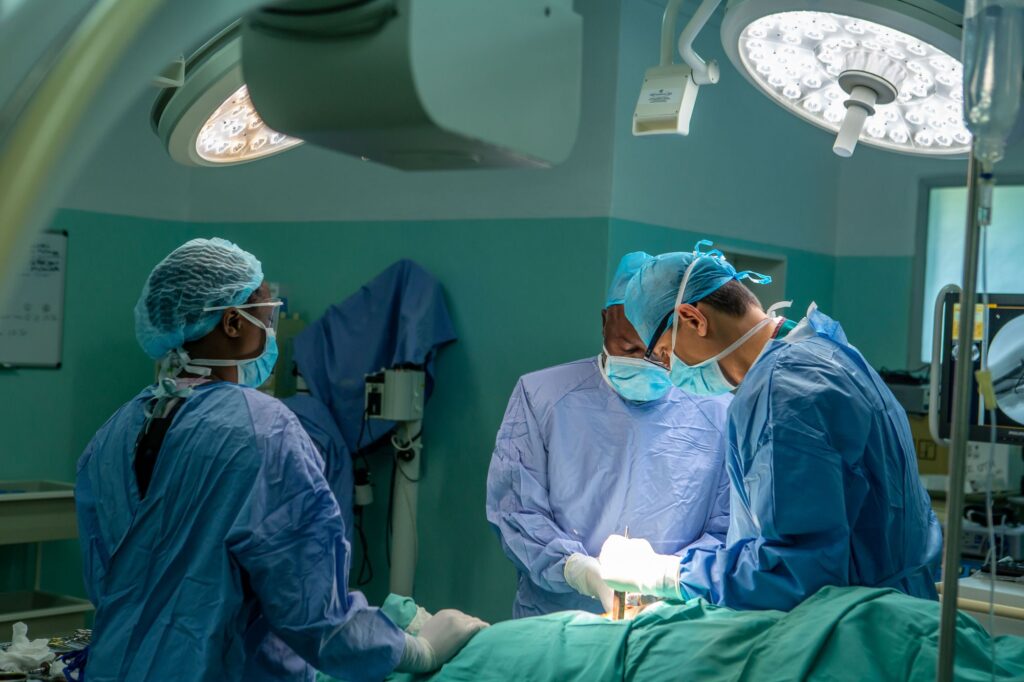
Surgeons at CURE Zambia work diligently during Nanga’s surgery.
During Nanga’s follow-up visit, the doctor removed the casts on Nanga’s legs. One month later, the X-ray showed that Nanga’s bones were intact and everything was in place. The surgeon assured Kenny and Esnart that Nanga’s condition had been corrected and that she could now participate in any activities, including playing football.
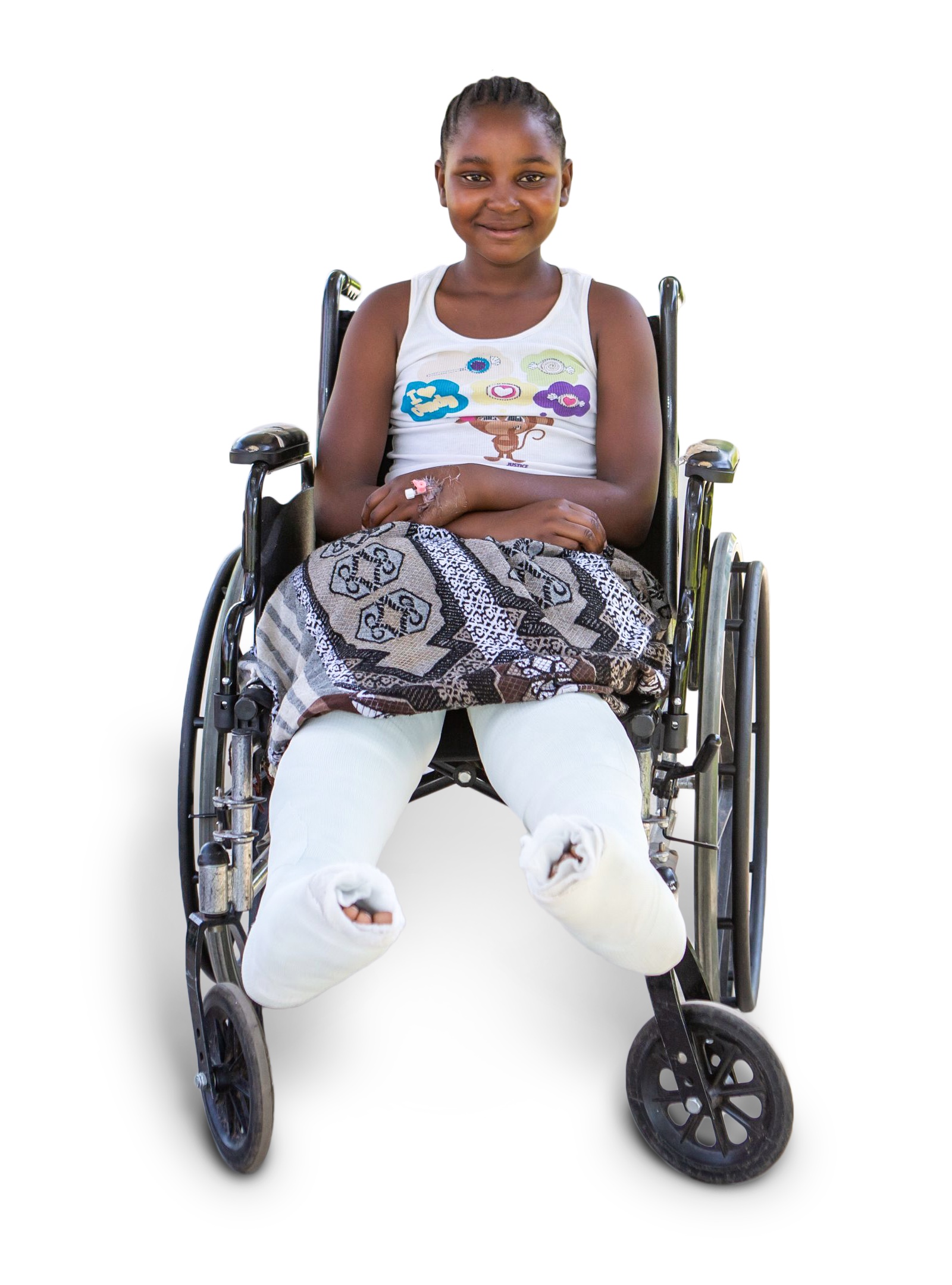
Kenny and Esnart were overjoyed.
“[At CURE], the services are excellent, starting with how the workers received us until the time we left. They really took good care of us,” shares Kenny.
Today, Nanga is 14 years old and in sixth grade. She can run, play football, and help with household chores without experiencing any pain in her legs. Her friends are back, and she started going to church again.
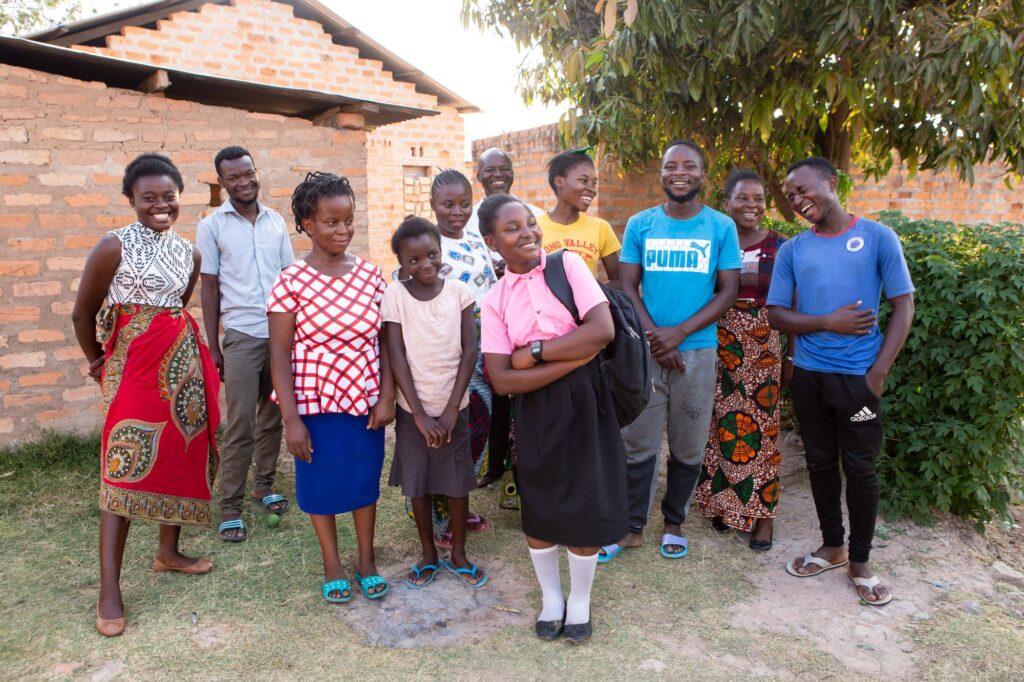
“Her life is heading in the right direction,” says her mom, Esnart.
The family is filled with gratitude to God.
“CURE Zambia should continue with the same spirit of taking care of patients so that many more will have the privilege of being served,” says Kenny. “The Lord alone will bless everyone.”
All medical and ministry care is provided at no cost to children and their families, made possible by the generous support of CURE partners and donors.
Learn how CURE provides surgical care to the most vulnerable children around the world.
Make a gift that demonstrates the love of Christ to more children like Nanga by providing the surgical care they urgently need.

